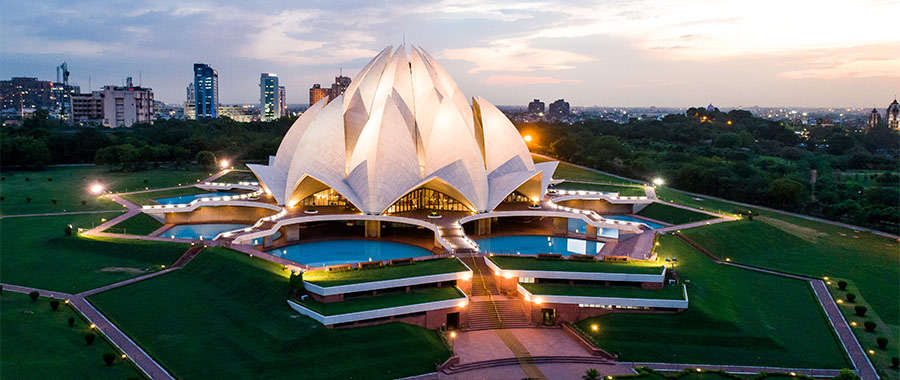The Bahá’í teachings elucidate the profound significance of sacred spaces and the pivotal role that places of worship play in the spiritual and communal tapestry of human existence. These spaces, imbued with reverence and sanctity, serve not only as architectural embodiments of faith but also as incubators of social unity, spiritual edification, and personal growth.
At the heart of Bahá’í thought lies the concept of unity. The sanctity of a place of worship transcends mere physicality; it is a manifestation of collective aspirations, embodying the allegiance of individuals to their Creator. From the majestic Bahá’í Houses of Worship, designed to be inclusive for individuals of all backgrounds, to smaller community centers, each space reverberates with the harmonizing principles of Bahá’u’lláh’s teachings. These edifices stand as testaments to the belief that, irrespective of diverse religious paradigms, humanity shares an intrinsic connection.
To comprehend the essence of sacred spaces, one must first delve into the central tenet of divine worship. Worship, in the Bahá’í context, is redefined; it is not a mere ritual performed within such spaces but an ongoing dialogue with the Divine that encompasses all aspects of life. In this regard, places of worship act as focal points, drawing together individuals seeking communion with God. They serve as sanctuaries where adherents cultivate an awareness of the divine presence and engage in acts of devotion that inspire moral fortitude and courage.
The physical structure of a Bahá’í House of Worship is itself a symbol of inclusivity. With no sectarian barriers, these spaces invite individuals to reflect, pray, and meditate irrespective of their background. This architectural ethos promotes an environment conducive to spiritual discovery and collective healing. The harmonious design invites a contemplative atmosphere, fostering reflection that resonates with visitors at a visceral level. Each element—whether it be intricate stained-glass windows allowing natural light to stream through or the serene gardens that envelop the space—serves to heighten the spiritual experience.
Moreover, Bahá’í houses of worship are designed not only for personal reflection but also for communal gatherings, reinforcing the communal spirit. They stand as pillars of social action, promoting education, justice, and humanitarian efforts in accordance with Bahá’í principles. Such spaces catalyze discussions on pressing societal issues, embodying the belief that spiritual observance should invariably translate into social responsibility. The intersection of faith and action in these spaces offers individuals a pathway to participate actively in the betterment of society, thus fulfilling the divine purpose of worship.
One cannot underestimate the transformative impact of shared sacred spaces on interpersonal relationships and community cohesion. The communal activities hosted at these locations—prayer services, educational programs, and service initiatives—forge deep bonds among participants. The atmosphere is laden with synergy; individuals from various walks of life converge, fostering an environment rich in diversity yet united in purpose. This undertaking illuminates the Bahá’í assertion that humanity is akin to a single body; when one part thrives, all are uplifted.
As Bahá’ís contribute to the vibrancy and functionality of these congregational spaces, they also become stakeholders in the evolution of their communities. With an emphasis on consultation and collective decision-making, this model of governance nurtures a spirit of cooperation and shared responsibility. The act of aggregating in places of worship cultivates attitudinal shifts, imbuing individuals with the conviction that collective efforts can induce meaningful change and transcendent growth.
In light of current global challenges—conflict, inequality, and division—the call for communal sanctity has never been more pressing. The Bahá’í teachings advocate for the establishment of environments where mutual respect, love, and understanding prevail. By embracing sacred spaces, adherents not only strengthen their relationships with one another but also build a formidable foundation for future generations. Such actions resonate with the core belief in the potential for humanity to evolve toward a civilization marked by peace and collaboration.
Engaging in communal worship thus becomes a cornerstone of Bahá’í practice, not merely as an obligation but as a source of inspiration and motivation. Within the hallowed halls of these sacred spaces, prayers are lifted, and aspirations are shared. Each gathering is imbued with palpable hope, showcasing the profound capacity for personal and collective transformation. The retreat from the mundane to the sacred encourages individuals to introspect, question, and ultimately awaken to their spiritual potential.
In conclusion, the Bahá’í perspective on sacred spaces and places of worship invites a profound shift in understanding—redefining these entities from mere physical locations to dynamic arenas for spiritual growth and communal action. They stand as vibrant testimonies to the interconnectedness of humanity, where individuals are encouraged to unite in celebration of diversity and common allegiance to the Creator. As society grapples with existential dilemmas, the teachings of Bahá’u’lláh illuminate pathways toward healing and unity, reinforced by the enduring significance of sacred spaces. Embracing this perspective not only piques curiosity but compels individuals to explore their shared humanity, driving the collective towards a more harmonious future.
